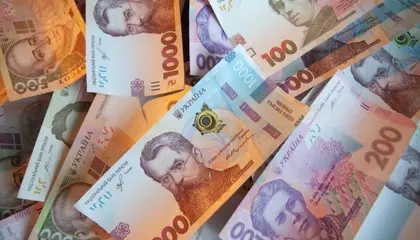After a six-week break, last week, foreign investors restarted buying bonds.
On the primary market, the Ministry of Finance attracted only UAH2.7bn (US$75m) to the budget, and most of it via "reserve" bonds (see details in the auction review). Thus, the total amount of bonds banks can use to cover part of required reserves increased to UAH87bn (US$2.4bn). Ordinary and military bills are in little demand, bringing only UAH71m (US$1.9m) to the budget last week.
Trading activity on the secondary market decreased again. In total, 6,054 deals worth UAH4bn (US$108m) were concluded in one week. Traditionally, bills maturing in February 2025 have been the most active, but this week, notes maturing on May 24, 2023 also traded actively. Volumes were UAH1.1bn (US$31m) and UAH1.6bn (US$44m), respectively, or 28% and 41% of the total for the past week.
All groups of investors increased portfolios of UAH government bonds, with banks and foreigners growing their holdings by UAH1.5bn (US$40m) and UAH0.5bn (US$15m), respectively.
ICU view: Banks did not use in full the available limit of "reserve" government bonds and reduced their purchases. According to our calculations, banks can invest another UAH20bn (US$547m) in "reserve" bonds. Still, they are in no hurry due to the long tenor of these securities.
During last week’s press conference about the new key rate, the governor of the NBU abstained from answering a question whether foreign investors will be able to repatriate funds from redemptions of bonds after April 1. He said that the NBU plans to make an appropriate decision this week. Some market participants took this as a confirmation that the NBU's plan to allow the repatriation of funds from April remains unchanged. Therefore, on the same day, foreigners increased their portfolios by UAH0.6bn (US$17m). Bonds maturing in May of this year were actively traded this day. If the NBU confirms the possibility of repatriating the funds, trading activity on the secondary market is likely to surge.

ICU Weekly Insight: Jan. 24, 2024 – FX-Denominated Bills Support State Budget
JOIN US ON TELEGRAM
Follow our coverage of the war on the @Kyivpost_official.
Bonds: Eurobond prices keep declining
Cautious global sentiment remains the key factor determining the price for Ukrainian Eurobonds.
Over the past week, Ukrainian Eurobonds fell in price by 1‒2% and traded mainly in the range of 17‒23 cents. VRIs fell in price to less than 27 cents per dollar of notional value.
ICU view: Turbulence in the US and Swiss banking sectors prompted investors to further reallocate investments to safe-haven assets, pushing up US treasuries and German bunds prices. Accordingly, interest in EM bonds, including Ukraine paper, weakened.
FX: Hryvnia cash rate weakens marginally
After two months of strengthening, the hryvnia cash exchange rate edged down last week.
Over the past week, the hryvnia cash rate at leading retail banks weakened for the first time since January, but only by 0.2%, to UAH37.9‒38.8/US$. Banks increased the bid rate more than the sell rate, narrowing the bid-offer spread by UAH0.03 to UAH0.90.
In the interbank market, bank clients (legal entities) reduced the volume of hard currency trading, and the balance shifted in favour of buying hard currency. Therefore, the NBU increased interventions to US$376m.
ICU view: Banks' expectations that the strengthening of the cash hryvnia will not be a long-term trend proved to be correct so far. They responded with narrower bid-offer spreads last week on a faster increase in the bid rate. The population is currently not in a hurry to sell cash hard currency, waiting for further exchange rate correction.
Economics: Key rate: kept unchanged yet cut
NBU has kept the key rate at 25%, but simultaneously changed the monetary policy design by cutting the overnight CD rate to 20% from 23%.
Starting April 7, the regulator will also offer three-month CDs yielding 25%. Banks would be eligible to purchase such instruments only if they managed to attract enough deposits with three months or longer initial maturity. In due course, the NBU will provide detailed guidance on how such an instrument will work.
Additionally, NBU is imposing a fourth hike of the reserve requirements in May regarding term deposits. Banks will be able to apply the current reserve rates (0% for UAH term deposits and 10% for FX term deposits) only regarding deposits with an original maturity of three months or longer.
ICU view: Due to lower-than-expected inflation, NBU has de-facto started cutting the rate despite technically keeping it unchanged. This decision is a step towards softer monetary policy with more of the same likely to come in the following months.
Banks have accumulated massive amounts of UAH retail current accounts that threaten financial stability should the clients' mood change in favour of higher spending. Therefore, the NBU seeks to tie that liquidity into term deposits to ease potential inflationary pressure.
However, the NBU risks keeping rates too high for too long as banks fail to respond to monetary policy stimulus by raising the deposit rate sufficiently and attracting a vast amount of term deposits.
RESEARCH TEAM: Vitaliy Vavryshchuk, Alexander Martynenko, Taras Kotovych
See the full report here.
You can also highlight the text and press Ctrl + Enter






